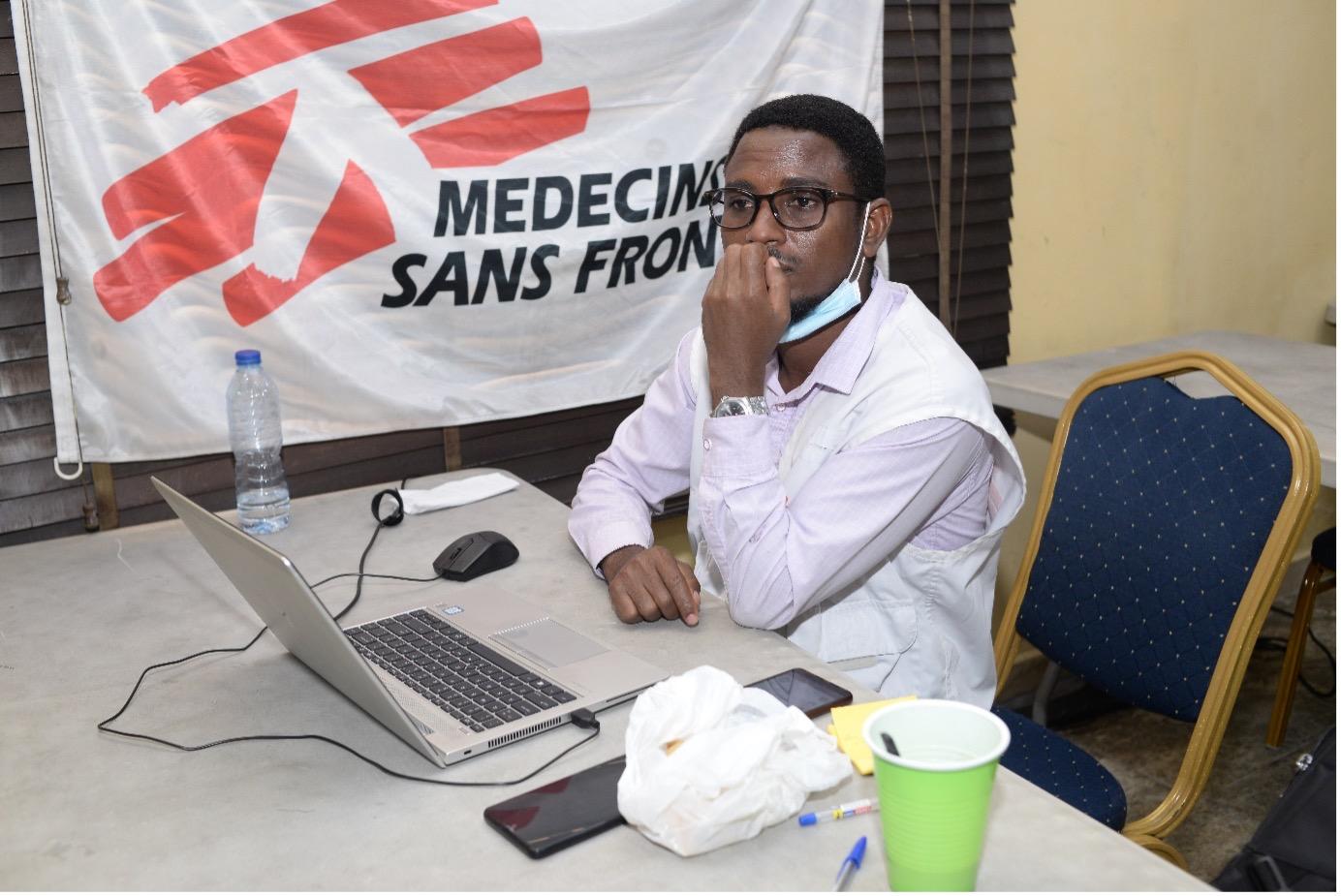“I come from Kenya’s Northern Mandera county, which is located in the same province as what was once the world’s largest refugee camp, Dadaab. I joined Médecins Sans Frontières (MSF) back in July 2011 to respond to medical emergencies following an influx of refugees from Somalia.
One time in Mandera, my brother got ill and was admitted to hospital, where he was in shock for almost two weeks. The doctors and other medical staff on duty did not pay much attention to him. They would bring us drugs, but we had to administer the drugs to him ourselves. That’s when I decided to offer my services in the humanitarian sector.
I thought that MSF could be where I offer my services best for free. I joined the organisation as a nurse in Dadaab refugee camp in 2011. At first I was deployed as a nutrition nurse in the intensive care ward. The first three months were intense since children would come in very malnourished and often very sick. We were a hardworking team and worked in shifts, but the number of deaths of the kids was high. We could have almost 10 children die in a day because they would arrive in a very bad state.
Working in the refugee camp was challenging. Sometimes you would face resistance from local communities in executing your duties. Roads were barely passable, network access was an issue and we would witness demonstrations by the community from time to time. Securing medical referrals for the refugees beyond the camps was another major challenge. The government would object, because some refugees would disappear in towns and would never want to go back to the camps. So we took it upon ourselves to ensure that all refugees taken out for medical referrals went back to the camp after their treatment.
At the end of July 2011, I was promoted to nurse supervisor, a position I stayed in for the next three years. Six months down the line the emergency was brought under control and things stabilised for a while. An extension of the intensive care ward was created in the hospital, with 10 beds. I was appointed as head of the ward where children in a critical condition were admitted.
I then became head nurse of MSF’s 200-bed hospital, supervising 150 nurses in the beginning. Later we decided to scale down staff numbers and some of our activities, since conditions were becoming better. I was later appointed deputy project coordinator and then project coordinator.
As project coordinator I mainly supported the team, by networking, being in charge of security, chairing meetings and acting as a liaison between staff, the local community and the authorities.
Outside Kenya, I first worked for MSF in Nigeria in March 2021 as a project coordinator for a sexual and gender-based violence project. MSF gave medical assistance to the victims while ensuring their confidentiality as well as providing them with social and psychological care.
I remember a particularly heartbreaking story of a teenage girl who was sexually abused over many years by a family member. She was pregnant by the time she was brought to our facility, but we were able to provide the medical care that she needed at the time.
We later referred her to the Ministry of Social Welfare, where she was given accommodation for nine months until she delivered her twins. She initially wanted to give the babies up for adoption but later changed her mind. She was given social support by the ministry. She had a long journey towards recovery and to being able to finally stand up for herself. We walked with her on this journey and even today she is still very appreciative.
Since February, I have been back in Nigeria, working in Akor primary healthcare centre and Old Ndeddiji in Cross River state. We are mainly providing primary healthcare, including general outpatient care, maternal healthcare, referrals, immunisations and antenatal care.
MSF is working in this part of Nigeria to reduce morbidity and mortality rates among local communities as well as providing quality healthcare. We also intend to come up with measures to ensure the facilities we have set up are sustainable and to create ownership by the community, so that the facilities do not collapse after we leave.
As a medic, my job gives me satisfaction because I am there for my patients when they need me. It is even more fulfilling when I see patients with chronic conditions who arrive in bad shape but leave our health facilities happy.”
